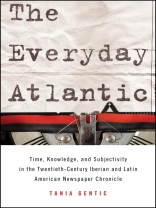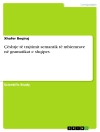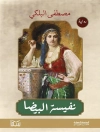In
The Everyday Atlantic, Tania Gentic offers a new understanding of the ways in which individuals and communities perceive themselves in the twentieth-century Atlantic world. She grounds her study in first-time comparative readings of daily newspaper texts, written in Spanish, Portuguese, and Catalan. Known as chronicles, these everyday literary writings are a precursor to the blog and reveal the ephemerality of identity as it is represented and received daily. Throughout the text Gentic offers fresh readings of well-known and lesser-known chroniclers (
cronistas), including Eugeni d’Ors (Catalonia), Germán Arciniegas (Colombia), Clarice Lispector (Brazil), Carlos Monsiváis (Mexico), and Brazilian blogger Ricardo Noblat.
While previous approaches to the Atlantic have focused on geographical crossings by subjects, Gentic highlights the everyday moments of reading and thought in which discourses of nation, postcolonialism, and globalization come into conflict. Critics have often evaluated in isolation how ideology, ethics, affect, and the body inform identity; however, Gentic skillfully combines these approaches to demonstrate how the chronicle exposes everyday representations of self and community.
Tabla de materias
Illustrations
Acknowledgments
Introduction
1. Reading Time, Knowledge, and Power in the Ibero-American Atlantic
2. From Mediterranean to Atlantic:
Imperialisme and Ideology in Eugeni d’Ors’s
Glosari
3. Reimagining America, Reproducing Europe: Ambivalence and Intersubjectivity in Germán Arciniegas’s ‘Indigenous’ Ethics
4. Knowledge Beyond Borders: Clarice Lispector Chronicles Affect in Dictatorship Brazil
5. The Virtual Subject: Carlos Monsiváis, Media Time, and Mexico’s ‘Citizens-on-Their-Way-to-Becoming-Citizens’
Conclusion: (Digital) Knowledge and the Everyday Atlantic Subject as Palimpsest, From Chronicle to Blog
Notes
Bibliography
Index
Sobre el autor
Tania Gentic is Assistant Professor of Spanish at Georgetown University.












